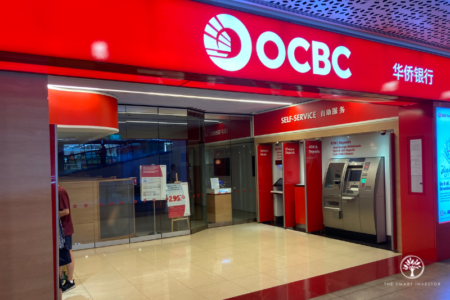Market crashes can be tough to stomach.
Just think back to May 2008, before the onset of the Global Financial Crisis.
Imagine a new investor came along and decided that it was time to enter the stock market.
Being new to the Singapore stock exchange, the investor decides to purchase the SPDR STI ETF (SGX: ES3), an exchange traded fund (ETF) that tracks the Straits Times Index (SGX: ^STI), at S$3.27 per share..
As it turns out, that very date was the highest point for the ETF before it crashed around 51% to a low of S$1.61 in February 2009.
The same thing happened again when the COVID-19 pandemic hit our shores.
From a high of S$3.205 in January 2020, the ETF dived by 22.6% in two months to hit S$2.48.
If the unfortunate investor invested S$10,000 at the start, he or she would have been left with $7,800 in less than a year.
A fall like that hurts. A lot.
The upside to a downturn
But a market downturn could also be a great time to pick up stocks at bargain prices.
From the bottom of March 2009, the ETF then proceeded to double to S$3.23 by January 2011.
Individual stocks also shot up sharply.
For instance, United Overseas Bank (SGX: U11) is up over 82% while DBS Group Holdings (SGX: D05) has climbed by 94% from its March 2009 nadir.
But just because a stock goes up, it doesn’t mean that it is right for your portfolio.
Let me explain.
Where do you want to go today?
All of us have different financial goals and personal circumstances.
For some investors, their goal may be the creation of a separate income stream.
Dividend stocks could fit the bill here.
For others, they may tilt more towards a desire to grow their hard-earned savings.
Growth stocks could be more suitable for such a group.
But whatever your goals may be, it is important that you are clear on what you would like to achieve.
Stocks frequently go on sale during a downturn, but this is no excuse to pick up cheap stocks that do not fit your needs.
Just like it wouldn’t help your household if you walk out of an electronics sale with three vacuum cleaners that you are never going to use.
Your financial goals should provide guidance as to which stocks you need to buy.
The humble shopping list
“I could improve your ultimate financial welfare by giving you a ticket with only twenty slots in it so that you had twenty punches – representing all the investments that you got to make in a lifetime.”
— Warren Buffett
The vast majority of us have limited time and money.
As such, you might want to take a cue from Warren Buffett, arguably one of the world’s greatest investors, on how you should think about the stocks you want to include into our own portfolios.
You should ask yourself: which companies will help me to achieve my goals?
But it goes further than that.
You need to do research on stocks you wish to own, and put together a shopping list, just like the way you do grocery shopping.
All this research may sound mundane and boring.
But this humble list can become valuable when a market downturn hits.
After all, you would not want to scramble to find suitable companies when a sale arrives.
You want to have the confidence to act when the opportunity arises, rather than be caught second-guessing on which stock is suitable for your portfolio.
The final ingredient
Billionaire fund manager Howard Marks believes there are two simple things that an investor needs to make money during a downturn.
Surprisingly, Marks said the key ingredients did not include caution, conservatism, discipline or even risk control.
All you need to do, Marks says, is to have money to spend and the nerve to spend it.
If we follow his lead, the final ingredient to taking advantage of a market decline is simply the cash on hand to act when you want to.
This means putting aside an amount of cash, whatever the figure might be, so that you can have the ammunition to buy when it matters most.
Get Smart: Seize the opportunities
It’s a fact that markets will fall from time to time.
A market crash can hurt in the short term but it can also present investors with the opportunity to pick up bargains.
It can make a big difference to your wealth if you are prepared for a downturn.
Having clear investment goals means you can start looking for companies that fit your needs.
And if we have a list of such companies ready, we will be more prepared to act rationally when a downturn occurs.
The last and final ingredient, of course, is to have the stomach to act, and not stay rooted to the spot.
Looking to start investing? Our beginner’s guide will show you how to make the best buying decision and make fewer mistakes. Click here to download for free now.
Follow us on Facebook and Telegram for the latest investing news and analyses!
Disclaimer: Royston Yang owns shares of DBS Group.




